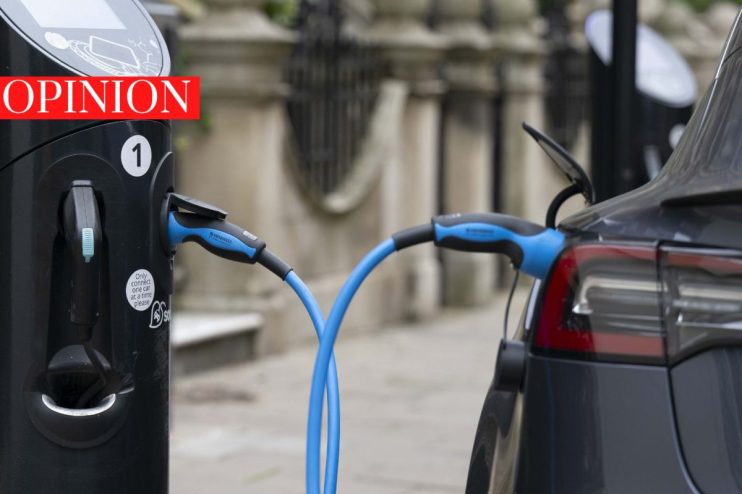Sunak’s hands off approach won’t make electric vehicles more affordable in 2035

Only a few days ago, the Society of Motor Manufacturers and Traders urged the government to go “on the offensive” to make electric motoring mainstream.
The industry was geared up to look at how eco-friendly cars can be made better and cheaper.
Chief exec of the trade body Mike Hawkes warned Rishi Sunak that many of the tax breaks, grants and other incentives designed to mobilise the adoption of electric vehicles had dried up.
However, barely a day after the ink was dry on his statement and Sunak announced a volt-face on his government’s green agenda.
Not quite what Hawes meant.
As a sector, vehicle manufacturers have been looking at ways to make the adoption of electric cars easier. Think about the ubiquity of Uber drivers in London, for example. Imagine if those fleets of ride hailing drivers switched en masse to electric cars. Doing so would mean more of their cars wind up on the used vehicles market, driving lower prices for Britain’s drivers. No one in the industry is ignorant of the cost burden on consumers; all of us are utilising the levers available in the market to make them cheaper.
So I was flabbergasted by the plans, especially by the platform given to them, with a whole new podium designed for Sunak.
There is no other way to describe the new plans as deeply regressive towards the net zero goal. A cynical exercise in political spin to help win over green-sceptic Conservative voters in the context of poor opinion polling.
What’s worse, using the cost of living crisis as a smokescreen for this backpedalling demonstrates dreadful leadership.
The Chair of Ford in the UK, Lisa Branklin, was apoplectic at the news saying that “any delay on government petrol car ban risks EV transition… Ford needs three things from the U.K. government: ambition, commitment and consistency.”
This morning Sunak demanded to know why certainty to business was more important than household’s budgets. The answer is it’s not. Most of the moves made within the industry have been designed to make the prohibitively expensive Teslas the outlier.
It also creates a fault line between the Conservatives and the Labour Party, meaning the date could be moved back if Keir Starmer secures a victory at a general election. Yet more uncertainty.
All ends of the spectrum need a boost – new and used EVs need incentives to get drivers behind the wheels and price is king.
The current VAT system, for example, directly penalises EV drivers without home charging. VAT on public charging is at 20 per cent, whereas it is 5 per cent at home. This needs to change, urgently, as it is literally penalising poorer people who don’t have the luxury of charging at home.
Private firms like Uber have shown leadership with a commitment to have 100 per cent of their vehicles electric by the end of 2025. This is a massive mover in the market, but unfortunately it is limited to the capital.
The industry – and the climate – needs adoption across the UK and I can say confidently it’s a much tougher sell to get an Uber driver in regional cities to make the switch to EVs.
The government just needs to put their foot down hard and embrace EVs, rather than the current situation which is far worse than kicking the issue into the long grass: actively hampering efforts to make Britain’s roads – and air – greener and cleaner.